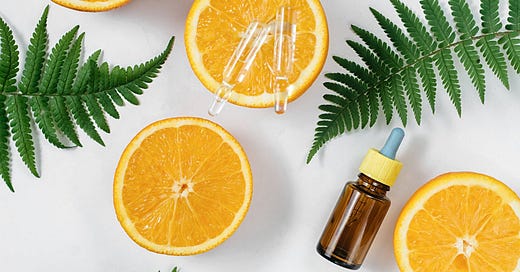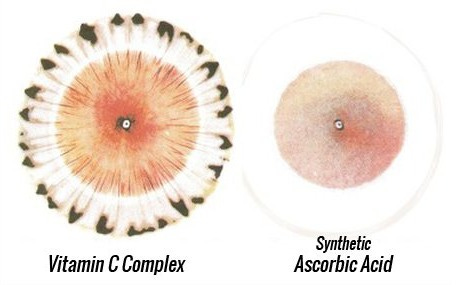Vitamin C is a name we all trust—it's the first thing many reach for when illness strikes, energy dips, or immunity needs a boost. And rightly so. Real vitamin C is essential. It strengthens our immune system, supports adrenal health, protects our cells from oxidative damage, aids in collagen formation, and helps the body detox.
But here’s the part many never stop to question:
What if the “vitamin C” you’ve been giving your family isn’t really vitamin C at all?
The Real Vitamin C vs. Ascorbic Acid
Most of the “Vitamin C” supplements sold in stores and even online—yes, even the expensive ones—are ascorbic acid.
But here’s the problem:
Ascorbic acid is not true vitamin C.
Let that sink in.
It sounds like vitamin C, the label says it’s vitamin C, and most nutrition training teaches that it is vitamin C. But the truth is, ascorbic acid is only the outer shell of the full vitamin C complex.
Imagine peeling an orange and calling the peel “the orange.” That’s essentially what we’re doing when we equate ascorbic acid with vitamin C.
Why This Matters: The Dangers of Isolated Ascorbic Acid
Ascorbic Acid is:
Synthetic – it’s made in a lab, not found in nature.
Derived from GMO corn – a far cry from the fresh citrus fruits we associate with health.
Stripped of its natural cofactors – making it poorly absorbed and potentially stressful to the body.
Vitamin C in its complete form includes not just ascorbic acid, but also bioflavonoids, rutin, tyrosinase, K factors, and other synergistic compounds. These work together like an orchestra—take one part out and you don’t get the same music.
When we take high doses of isolated ascorbic acid, the body scrambles to find the missing cofactors needed to process it. This can lead to:
Nutrient depletion
Imbalance in the microbiome
Disruption of natural flavonoid activity
It’s like robbing Peter to pay Paul—and in the long run, your health could suffer.
What You Should Look for Instead
Look for whole food vitamin C sources that include all the cofactors your body needs to actually benefit:
Camu camu
Acerola cherry
Rose hips
Amla berry (Indian gooseberry)
Whole-food concentrates and powders (check labels carefully)
These contain the full vitamin C complex, as nature intended.
Re-Educate, Re-Build, and Reap the Benefits
Like many, it took me time (and some unlearning) to wrap my head around this. I wanted to believe the bottles I had were helping my family. But truth and health go hand in hand.
If we truly want to support our bodies, we must give them real nourishment, not imitations.
Thank you for reading GreaterGood Health and Healing! As always, my content is free to read and subscribe to. If you’d like to support my work, any amount is genuinely appreciated—you can do so via PayPal or Venmo. Your encouragement and support mean a great deal.







